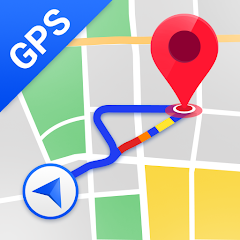The internet has long been a central fixture of our modern lives. However, as more and more workers and schools move to virtual environments, having a browser that can support your specific needs has become more crucial than ever. The last thing you need is for your internet browser to crash when you’re in the middle of something, causing several moments of lost progress.
However, if you search for an internet browser, you’ll find yourself flooded by options. So, how do you go about choosing the best internet browser for your specific needs? Here are 6 tips that you should keep in mind during your search.
1. System Compatibility
When you first start to consider the best internet browser for your needs, your first thought should be compatibility.
What does this mean? Well, not every browser will be compatible with every system. For example, browsers like Chrome, Internet Explorer, and Safari were designed for specific platforms. Chrome works best with Chromebooks and Google-based systems, Internet Explorer/Microsoft Edge is the browser of choice for Windows machines, and Safari is designed to work best for Macs.
This isn’t to say that you can’t install a non-optimal browser on a computer it isn’t on by default. (You can certainly install ie on mac, if you’re so inclined.) However, you won’t get the best performance out of it.
2. Multi-Tab Handling
If you’re asking yourself, “What is the best internet browser for me?”, then your next point of consideration should be multi-tab handling. Let’s face it: With our education, work lives, and personal lives almost exclusively existing in online spaces, you need to be able to handle multiple tabs open at once.
Whether you’re browsing social media during your work time (we won’t judge) or you need loads of tabs for research, every tab increases the load on the browser speed. If you don’t have the right web browser, you could find that your internet moves slower than a snail on a cold day.
This can also lead to serious issues if you have video calls or other high-memory tasks open in your tabs. Issues like disconnections, freezes, or audiovisual glitches.
3. Privacy and Security
It’s a scary time to browse the internet. While cybersecurity measures adapt quickly to close potential loopholes, hackers move even faster. As many as 30,000 new websites get hacked each day. This puts your personal information at extreme risk each time you browse.
Many of the best web browser options on the market today include certain security measures like built-in VPNs or ad blockers. If security is one of your greatest concerns, make sure to research what each browser on the market can offer you in terms of privacy protection and cybersecurity.
4. Running and Processing Speed
As with anything based on technology, the faster it runs, the smoother your experience will be. You’re not exactly going to enjoy working online if you have to wait a minute for every tab you click to decide to open. Nor will you be able to work effectively if, when you type, there’s a serious delay between key presses and the text appearing onscreen.
That’s why your web browser’s running and processing speed are important. Google Chrome runs smoothly, for the most part. However, it eats an ungodly amount of your RAM in the background. So, you’d better hope that you don’t need to have any other programs open while you’re using Chrome.
If you do, you can expect serious lag spikes and other memory issues.
5. Niche Features You May Need
Another point to consider when you’re looking for the best browser for the internet is any niche features that you may need. While most of the above considerations we’ve mentioned are good for every user, there are some cases where you need a very specific feature or set of features that another browser doesn’t have.
For example, Opera has a variant known as Opera GX that has built-in Twitch integration along with a host of other features to make it easier for streamers to handle the load on their internet connections. Vivaldi hosts a highly-customizable interface that lets you position everything from the search bar to your bookmarks and tabs wherever you want.
Other less popular browsers host suites of features meant for coders and programmers to make their work easier. Make sure to search for a browser that suits a particular niche that you need to fill before settling for one of the big three.
6. App, Extension, and Plugin Integration
Last but not least, when you’re looking for the best internet browser for you, apps and plugins are crucial. Chrome is among the most famous web browsers in terms of extension support. If there’s an extension for it, from grammar-checking to coupon-applying, you can find one in Chrome. One of the biggest selling points of some of the alternative browsers is that they run on Chromium, meaning Chrome extensions are compatible with them.
However, extension integration is not your only consideration. Many sites and apps may not be supported by or integrated with your browser. Especially if you use one of the less-known browsers.
In general, it’s a good idea to have at least two browsers installed on your system. That way, if a site won’t load or a plugin doesn’t work with one, you can pretty well guarantee it will work with the other.
How to Choose the Best Internet Browser: A Review
Figuring out the best internet browser for your specific needs can be tricky. You have to consider the browser’s compatibility, plugin support, and features. However, in so doing, you can’t neglect the browser’s ability to handle multiple tabs or its processing speed.
If you can manage to parse which of these elements is most important to you, you’re sure to find the best web browser, no matter what you use the internet to do.
Did you find this article on how to choose an internet browser helpful? Would you like to read more like it? If so, then check out the Technology section of our blog each day for more!
















